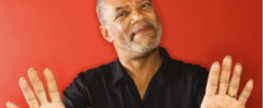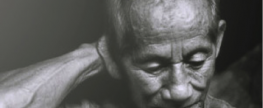
They’ll help you shift from a sense of loss to a sense of gain My 15-year-old son Evan walked off the tennis court triumphantly, as if he had just won the U.S. Open. Up to that point, our matches had always ended in a tie: I made sure of that or, rather, I could make sure of that. Now, toweling off while feeling an unfamiliar tug on my heart, I said to him, “Hey, Ev, did you ever wonder why the score always remained the same in our tennis matches over the years?” Then, in a suggestive whisper, I continued: “Maybe you could continue that trend — gracefully?” He didn’t respond, but I knew his answer. And it was deafening. Walking back to the car, I was consumed by the thought that my relationship with Evan (and with my life generally) was clearly at a crossroads. Staying positive as I aged would require letting go of capacities that were diminishing and embracing ones that were expanding. Easy transition? No! Gratifying? Mostly! Here are five secrets I’ve learned along the way that helped turn my experience of aging from a sense of loss into a sense of gain: Learn to accept what is. There is no end to the expanding benefits of embracing life on its own terms. If I hadn’t accepted my inevitable decline in physical acuity — the awareness of which began on the tennis court that day — it would have led to nothing but suffering. Instead, by refocusing my attention on supporting, even celebrating, my son’s physical ascension from boy to early manhood, I was able to walk away from “defeat” feeling relatively good. This mindset shift allowed me to interpret the situation, and many others...









